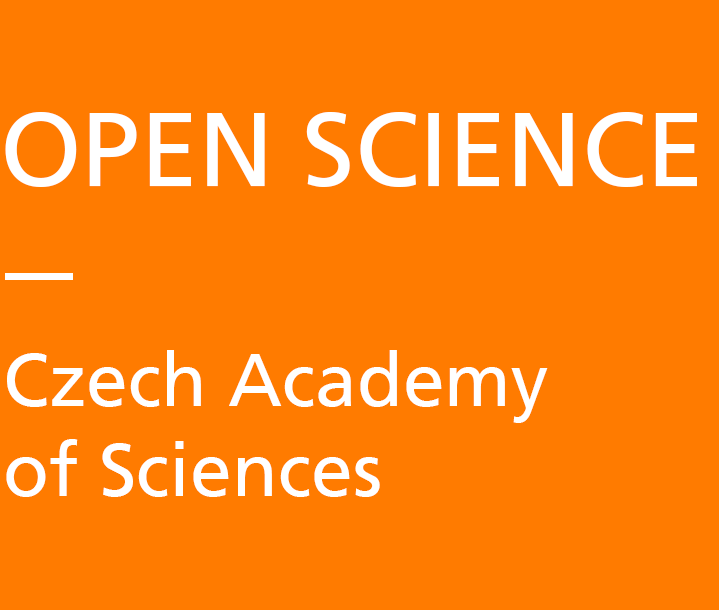An electronic laboratory notebook (ELN) is a tool that helps scientists to structure, document and describe research data in digital form. This type of software replaces paper and traditional digital notebooks. ELN is useful not only for those who conduct laboratory experiments, but also for anyone who collects and analyzes data. In group projects, it allows you to clearly record who was responsible for a particular part of an experiment.
This tool supports the implementation of the FAIR principles under the Open Science policy in terms of openness, transparency, findability and reusibility of research and research data.
In 2023, the Academy of Sciences issued an official document „Doporučení pro vedení laboratorních deníků z pohledu ochrany duševního vlastnictví.“ You can find it here, along with other tips for using them.
An expert about new features and and functions of ELN is our collegue Mgr. Cebecauer Marek Ph.D. from the J. Heyrovsky Institute of Physical Chemistry. He wrote a comparison of ELN tools, that you can find here. If you are interested in a meeting about ELN, please contact him at: marek.cebecauer@jh-inst.cas.cz.
Benefits of ELN
The ELN is particularly useful during the active phase of research data management and will help you keep track of the entire research process and its results. These tools allow you to collect data in clear documentation, have advanced features and search options in files (protocols, notes, templates).
- Intellectual property
ELN documents your original ideas and discoveries. If you decide to patent your work, or if you are dealing with authorship disputes, the ELN helps you, as evidence and legal record of your work, to prove that you were the first author of the idea.
- Collaboration
If you work with others in the lab, the ELN will ensure that everyone has the same overview of the process. By using it, you can avoid potential misunderstandings and mistakes.
- Reproducibility
If someone else wants to repeat your experiment, they can use your lab notebook as a guide.
- Data security
ELNs offer cloud-based data backup to prevent data loss and allow access from anywhere.
- Data archiving
ELNs can be integrated with other software tools, which can greatly facilitate data transfer, as directly importing data from instruments into ELNs is safer and more reliable than manual transcription. Integration with other applications supports the entire research process, including DMP and archiving services. Your data is in one place and can be published from the ELN to repositories and thus moved for long-term archiving.
Disadvantages of ELN
- ELNs may be free, but some are paid, or may have limitations on storage, file size, or number of users within the non-paid basic version.
- Although rare, a network outage can cause delays in downloading and viewing.
- Although uncommon, the risk of a security breach cannot be ruled out.
- Some products require additional training and thus using ELN can be time consuming in the beginning.
How to choose an ELN
There are many different ELNs that can offer a range of features and can be tailored to specific needs. There are many ELN providers on the market – some tools are free, others are fee-based, or offer a free basic version with paid add-ons.
For comparing and selecting them, here are some useful resources:
- How to pick an electronic laboratory notebook;
- 2019 Review of the Best Electronic Laboratory Notebooks;
- Guide on choosing an ELN from Simon Bungers of Labfolder;
- Electronic Lab Notebook Comparison Matrix;
- Considerations for implementing electronic laboratory notebooks in an academic research environment;
- ELN finder is a tool for selecting the right ELN for your needs;
- https://datamaterialized.eu/elab-notebooks.html ELN comparison wrote by Mgr. Cebecauer Marek Ph.D. sorted by criteria: user-friendly, FAIR data and functions;
- An article with the top 20 ELNs of 2024 can be found here.
List of widely used ELNs
| ELN | Link | Free of charge |
| eLabFTW | https://www.elabftw.net/ | Yes |
| GitHub | https://github.com/ | Yes |
| JupyterLab | https://jupyter.org/ | Yes |
| Kadi4mat | https://kadi.iam.kit.edu/ | Yes |
| LabArchives | https://www.labarchives.com/ | No |
| Labfolder ELN | https://www.labfolder.com/ | Freemium* |
| LabLog™ Electronic Lab Notebook (ELN) | https://labnotebook.app/ | No |
| Labstep | https://www.labstep.com/ | Yes |
| LabWare ELN | https://www.labware.com/lims/electronic-lab-notebook | No |
| Mbook – Mestrelab | https://mestrelab.com/software/mbook/ | No |
| openBIS | https://openbis.ch/ | Yes |
| Open WetWare | https://openwetware.org/wiki/Main_Page | Yes |
| OSF | https://osf.io/ | Yes |
| Revvity | https://revvitysignals.com/products/research/signals-notebook-eln | No |
| Rspace | https://www.researchspace.com/ | Freemium* |
| Scilligence – Software Solutions for Life Science R&D | https://scilligence.com/scilligence-eln/ | No |
Adapted by:
Esther Plomp (2019) „Electronic Lab Notebooks: turning a new page in laboratory research”;
NTK kurz Data Steward od DocEnhance;
eLab Notebooks porovnání ELN by Mgr. Marka Cebecauera Ph.D., online 2. 9. 2024;
The Pros and Cons of Using an Electronic Lab Notebook (ELN) by Rebecca Talley, online 2. 9. 2024
Electronic Lab Notebooks od Book The Turing Way, online 2. 9. 2024 ;
Advantages and Benefits of Using an Electronic Lab Notebook by Rick Halton, online 2. 9. 2024.
Last updated on July 14, 2025


